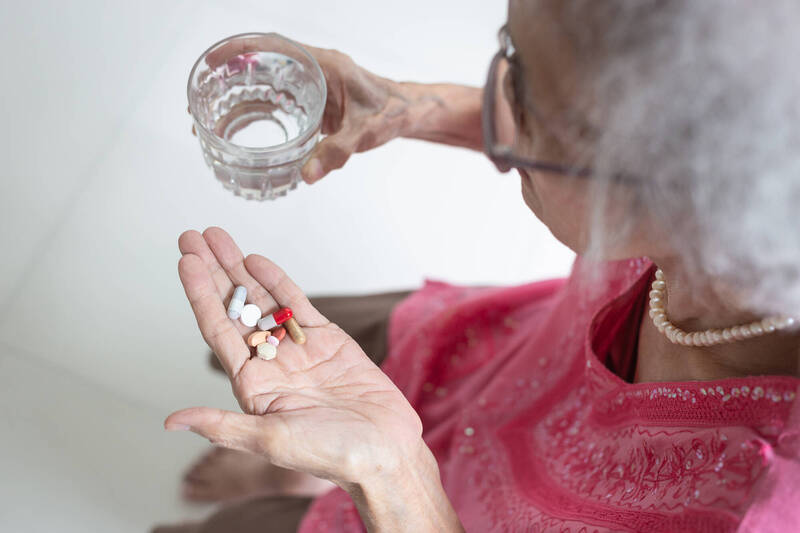Grasping the right time and taking medicine early can prevent the virus from threatening the lives of the people.
schematic diagram.
(picture taken from shutterstock)
[Reporter Dong Guanyi/Taipei Report] Countries around the world have unblocked one after another, epidemic prevention regulations are gradually loosened, and my country is gradually following the pace of unblocking. However, mutant strains of new coronary pneumonia are still springing up like mushrooms after rain, and the ability to escape immunity has greatly increased, spreading faster , reinfection will become the norm.
Huang Jingtai, a professor-level attending physician in the Department of Infectious Medicine, Department of Internal Medicine, Linkou Chang Gung Hospital, said that in addition to learning how to coexist with the virus, the current epidemic prevention focus is on how to avoid the risk of severe illness and death after infection, which can be monitored through the two major indicators of body temperature and blood oxygen saturation According to the severity of the disease, we should seize the right time to take medicine as soon as possible to prevent the virus from threatening the lives of the people.
Huang Jingtai pointed out that generally diagnosed patients can observe their own symptoms. If the symptoms gradually relieve within 2 to 3 days of onset, the probability of mild symptoms is high at this time. 38.5 degrees) or blood oxygen saturation less than 95%, it is recommended to seek medical attention immediately.
Please read on...
Increased alertness Self-observation of symptoms
Especially the elderly over 65 years old, pregnant women, obese, chronic diseases and comorbidities with regular visits, such as hypertension, diabetes, hyperlipidemia, cancer, poor renal function, immune insufficiency, chronic liver disease and lung disease, cardiovascular disease, etc. The 13 types of people belong to the high-risk group of new coronary pneumonia, and once infected, it is easy to cause severe illness.
What should high-risk groups pay attention to?
Huang Jingtai said that the observation time can be shortened. If the symptoms do not improve for one day, it is best to see a doctor and let the doctor determine whether they are eligible for oral antiviral drugs. If they can cooperate regularly to complete the 5-day course of medication, the drug will be fully effective. , let the viral load drop rapidly.
Timely medication can reduce the risk of severe death
Currently, antiviral drugs for the treatment of COVID-19 include injections and oral administration. The former is Remdesivir, and the latter is Paxlovid and Molnupiravir.
Huang Jingtai explained that the use of antiviral drugs during the golden treatment period of 5 days and the completion of the entire course of treatment can effectively reduce the risk of severe illness and death by 90%. However, oral antiviral drugs will interact with some drugs, and the public should inform them in detail when they see a doctor history to assist physicians in evaluating doses or adjusting other medications.
In addition, don't think that you are fine if you are not a high-risk group!
Huang Jingtai reminded that even if young people or people diagnosed with the new crown have received 3 doses of vaccines, they may be infected again, especially middle-aged people aged 40 to 65. Although they are not part of the high-risk group, they should not take it lightly when faced with the threat of virus variants.
He also cited foreign data and pointed out that the probability of a person diagnosed between the ages of 40 and 65 becoming severely ill is "2.5 times that of young people under the age of 40." If you find atypical symptoms such as changes in consciousness or loss of consciousness, cramps, etc., you should seek medical attention as soon as possible.
This report is a series of health education of Taiwan Society of Infectious Disease Medicine
☆Health news will never be missed, click like to follow the fan page.
☆For more important medical news, please go to Liberty Health.com.
keywords
Coronavirus disease
antiviral drugs
Second degree diagnosis
mutant strain
immune escape
related news
